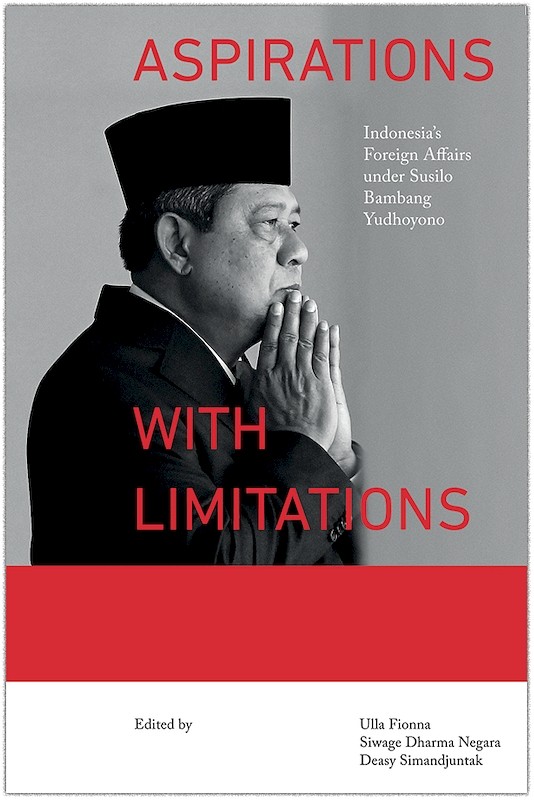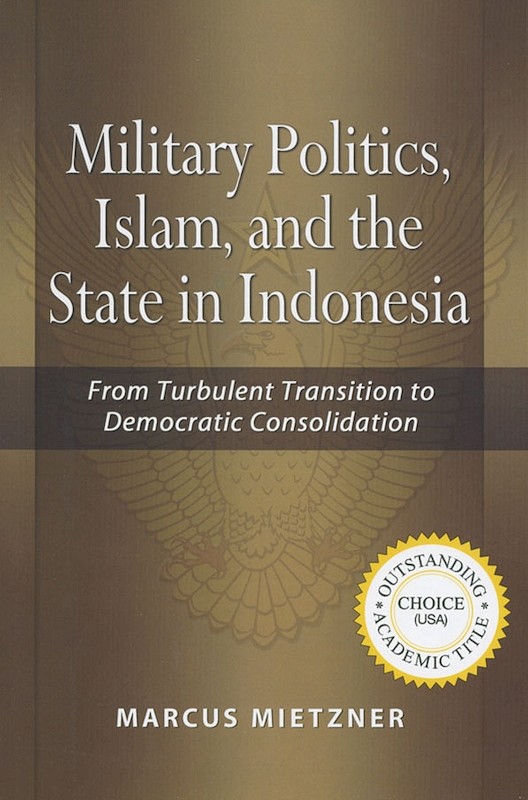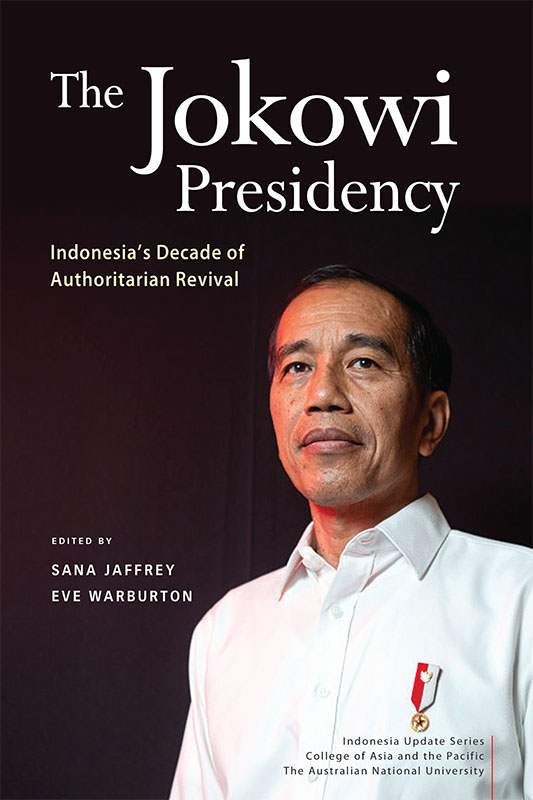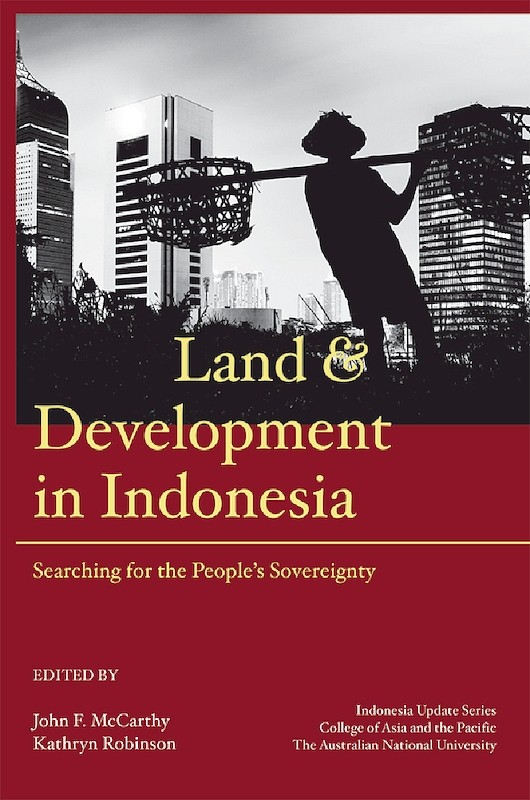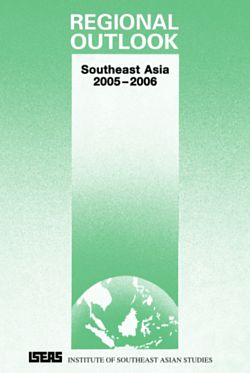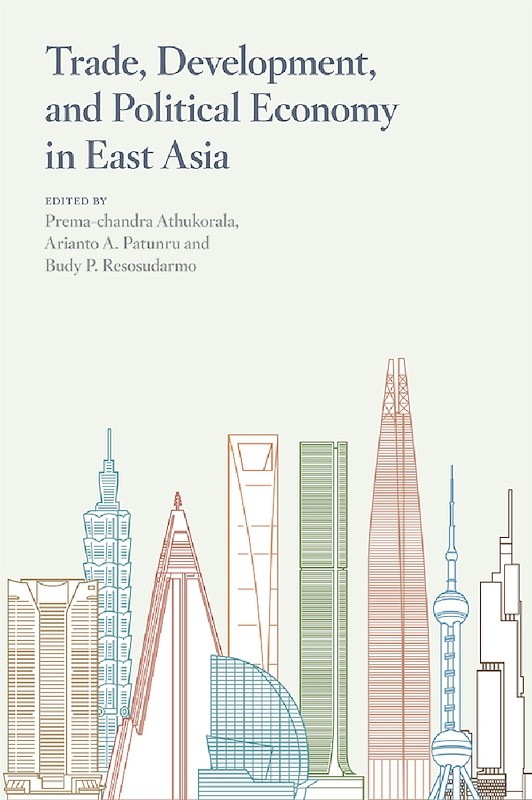The Yudhoyono Presidency: Indonesia's Decade of Stability and Stagnation
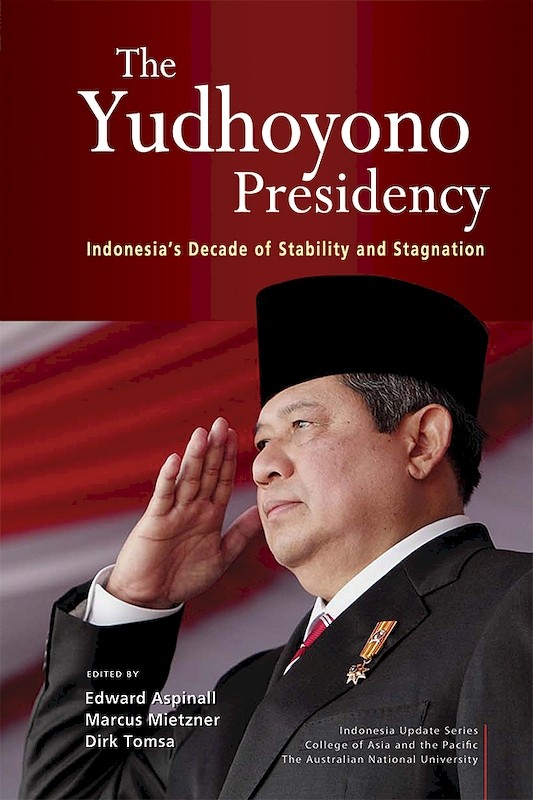
Date of publication:
2015
Publisher:
Institute of Southeast Asian Studies
Number of pages:
362
Code:
BM524
Hard Cover
ISBN: 9789814620710
Soft Cover
ISBN: 9789814620703
Reviews
Ward Berenschot, Bijdragen Tot De Taal-, Land En Volkenkunde 173, 2017.
"In the interest of maintaining the support of different (elite) factions, Yudhoyono felt compelled to cancel or weaken important reforms.
That at least is the conclusion of this superb collection of essays that evaluates Yudhoyono's achievements and failures in a wide range of fields. The introduction by the book's editors Edward Aspinall, Marcus Mietzner, and Dirk Tomsa, sets the tone: using a candid interview with the president himself, they describe Yudhoyono as a 'moderating president,' who understood his main task as to 'balance' and 'maintain harmony' between competing interests. The subsequent essays - all written by experts in their fields - provide the reader with highly informative accounts of what that balancing entailed in practice.
Two poignant essays at the beginning of the book - by Greg Fealy and John Sidel - invite reflection on the roots of Yudhoyono's indecisiveness. Fealy relates Yudhoyono's penchant for harmony and moderation to personal traits in particular a profound sense of insecurity and a desire to be liked and accepted after coming from a modest background.
The book describes Yudhoyono's decade as a trade-off between stability and stagnation, with most of the authors arguing that Yudhoyono unduly prioritized political stability over engaging in progressive reforms.
This book is not only an insightful account and evaluation of Yudhoyono's presidency. With wide ranging and well-written articles this book is also a highly informative overview of the main challenges facing Indonesia. This is not just a book for political junkies but also highly recommended for those who want to get a quick grasp of where Indonesia stands, 18 years after the fall of Suharto."
Hipolitus Yolisandry Ringgi Wangge, Journal of Contemporary Asia, 47:1, 2017.
"This book seeks to assess the Yudhoyono period. It is divided into four parts, with each part consisting of independent but linked chapters. The book is concerned with two central questions: What was Yudhoyono's style of governance and how could he manage the government? In answering such questions, the chapters draw from three important political perspectives and debates, namely the role of agency (the personality of the leader), institutional factors and structural factors. Three initial parts elucidate the factors that shaped Yudhoyono's personality, his relationships with other political elites and the masses and his administration's policies, and the impact of such policies internationally and domestically during his two terms in office (2004-14).
In an introductory chapter, Mietzner and Aspinall highlight Yudhoyono's moderate style of leadership, particularly in avoiding political confrontation and finding a common ground to settle such confrontation.
In his chapter, Greg Fealy argues that Yudhoyono's preference for stability and avoiding conflicts was due to his personality and his childhood experiences, as well as Javanese culture's promotion of societal harmony.
Evi Fitriani also critically assesses the role of Yudhoyono as an international political actor, emphasizing motivations, perceptions and emotion and how these influenced his approach to foreign policy.
Part 2 comprises five chapters that address how Yudhoyono managed the government. The chapter consider the limited reform of institutions such as the executive branch, parliament, the bureaucracy and the military, as well as the state's limitations in its capacity to deal with issues such as terrorism, decentralization and corruption.
[T]his edited collection with authors from a range of disciplinary backgrounds, offers useful critical assessments of Yudhoyono's two presidential terms."
Wahyu Prasetyawan, Southeast Asian Studies, 10 June 2017.
"The Yudhoyono Presidency: Indonesia's Decade of Stability and Stagnation is a collection of papers that were presented at the annual Indonesia Update conference at the Australian National University in 2014 and edited by three Indonesianists: Edward Aspinall, Marcus Mietzner and Dirk Tomsa. The volume's aim is to understand the presidency of Susilo Bambang Yudhoyono (SBY, as he is called in Bahasa Indonesia) between 2004 and 2014.
This book emphasises the personality of SBY to evaluate his terms as president of Indonesia. ... this book illustrates SBY and the policy actions of his government through two different approaches: personality and structure. ... These approaches are relatively successful in offering a comprehensive portrait of SBY with all the consequences of this coalition.
These approaches aim to help us understand the presidency of SBY, but they could have been sharpened by borrowing an institutional economics approach (this approach is very different from the institutional approach used by some of the scholars in the book).
This book also mentions some difficulties faced by SBY in the improvement of human resources. Data provided by contributors such as Faisal Basri and Dinna Wisnu show that SNY's performance in the education sector was a mere continuation of the previous administrations', starting from Suharto's time.
.... This book covers almost all the problems confronted by the SBY administration."
"This is a superb volume, a collection of essays that is more than the sum of its parts; the first scholarly analysis of the presidency of Susilo Bambang Yudhoyono, familiarly called SBY, who completed in 2014 the second of two five-year terms as the first directly elected president of Indonesia. It is a first cut at the history of a critical period in Indonesian democratisation, which began in 1998 with the resignation of long-term military rule Soeharto and the first democratic parliamentary election in 1999. The period continues today with the second directly elected president, Joko Widodo (familiarly called Jokowi), chosen in 2014. The high quality of these essay assures that the book will be the starting point and primary reference for further analysis of the Yudhoyono period for decades to come.
Before discussing the overall argument and individual chapters, it is important to describe the remarkable institutional context in which the book was produced, which even Indonesianists sometimes take for granted. All except the introductory chapter were first presented at the 32nd annual Indonesia Update held at the Australian National University (ANU) in Canberra in September 2014. By March 2015, the revised essays and an introductory chapter were ready for publication by the Institute of Southeast Asian Studies in Singapore. The Institute of Southeast Asian Studies has been publishing the Indonesia Update series, which covers a broad range of thematic topics, since 1994. Before 1994, Update volumes were published in Australia, also in a timely fashion.
The high level of scholarship of the editors and authors of this volume is of course primarily the result of the effort of individuals, most of whom are not employed by the ANU."
About the publication
The presidency of Susilo Bambang Yudhoyono (2004-14) was a watershed in Indonesia's modern democratic history. Yudhoyono was not only the first Indonesian president to be directly elected, but also the first to be democratically re-elected. Coming to office after years of turbulent transition, he presided over a decade of remarkable political stability and steady economic growth. But other aspects of his rule have been the subject of controversy. While supporters view his presidency as a period of democratic consolidation and success, critics view it as a decade of stagnation and missed opportunities. This book is the first comprehensive attempt to evaluate both the achievements and the shortcomings of the Yudhoyono presidency. With contributions from leading experts on Indonesia's politics, economy and society, it assesses the Yudhoyono record in fields ranging from economic development and human rights, to foreign policy, the environment and the security sector.
Contents
-
The Yudhoyono Presidency: Indonesia's Decade of Stability and Stagnation
[Whole Publication, ISBN: 9789814620727], by Edward Aspinall, Marcus Mietzner, Dirk Tomsa, authors -
Preliminary pages
-
1. The moderating president: Yudhoyono's decade in power , by Edward Aspinall, Marcus Mietzner, Dirk Tomsa, authors
-
2. Prologue: Yudhoyono's legacy: an insider's view , by Dewi Fortuna Anwar, author
- PART 1: PERSONAL, COMPARATIVE AND INTERNATIONAL PERSPECTIVES
-
3. The politics of Yudhoyono: majoritarian democracy, insecurity and vanity , by Greg Fealy, author
-
4. Men on horseback and their droppings: Yudhoyono's presidency and legacies in comparative regional perspective , by John Sidel, author
-
5. Yudhoyono's foreign policy: is Indonesia a rising power? , by Evi Fitriani, author
- PART 2: INSTITUTIONS, POLITICS AND SECURITY
-
6. A balancing act: relations between state institutions under Yudhyono , by Stephen Sherlock, author
-
7. Professionalism without reform: the security sector under Yudhoyono , by Jacqui Baker, author
-
8. Yudhoyono's legacy on internal security: achievements and missed opportunities , by Sidney Jones, author
-
9. Toning down the 'big bang': the politics of decentralisation during the Yudhoyono years , by Dirk Tomsa, author
-
10. The rule of law and anti-corruption reforms under Yudhoyono: the rise of the KPK and the Constitutional Court , by Simon Butt, author
- PART 3: GENDER, HUMAN RIGHTS AND ENVIRONMENT
-
11. Yudhoyono's politics and the harmful implications for gender equality in Indonesia , by Melani Budianta, Kamala Chandrakirana, Andy Yentriyani, authors
-
12. Human rights and Yudhoyono's test of history , by Dominic Nardi, author
-
13. Religious politics and minority rights during the Yudhoyono presidency , by Robin Bush, author
-
14. Big commitments, small results: environmental governance and climate change mitigation under Yudhoyono , by Patrick Anderson, Firdaus Wajdi, Avi Mahaningtyas, authors
- PART 4: THE ECONOMY AND SOCIAL POLICIES
-
15. The Indonesian economy during the Yudhoyono decade , by Hal Hill, author
-
16. The Yudhoyono legacy on jobs, poverty and income distribution: a mixed record , by Chris Manning, Riyana Miranti, authors
-
17. Ambitious but inadequate: social welfare policies under Yudhoyono , by Dinna Wisnu, Faisal Basri, Gatot Arya Putra, authors
-
Index
-
Indonesia Update Series
Indonesia Update Series
-
2014Regional Dynamics in a Decentralized IndonesiaHal Hill, editor
-
2013Education in Indonesia
-
2012Indonesia Rising: The Repositioning of Asia's Third GiantAnthony Reid, editor
-
2011Employment, Living Standards and Poverty in Contemporary Indonesia
-
2010Problems of Democratisation in Indonesia: Elections, Institutions and Society
-
2009Indonesia beyond the Water's Edge: Managing an Archipelagic State
-
2008Expressing Islam: Religious Life and Politics in Indonesia
-
2007Indonesia: Democracy and the Promise of Good Governance
-
2006Different Societies, Shared Futures: Australia, Indonesia and the RegionJohn Monfries, editor
-
2005The Politics and Economics of Indonesia's Natural ResourcesBudy Resosudarmo, editor
-
2004Business in Indonesia: New Challenges, Old Problems
-
2003Local Power and Politics in Indonesia: Decentralisation & Democratisation
-
2002Women in Indonesia: Gender, Equity and Development
-
2001Indonesia Today: Challenges of History
-
2000Indonesia in Transition: Social Aspects of Reformasi and Crisis
-
1999Post-Soeharto Indonesia: Renewal or Chaos?Geoff Forrester, editor
-
1997Indonesia Assessment: Population and Human Resources
-
1994Indonesia Assessment 1994: Finance as a Key Sector in Indonesia's DevelopmentRoss H McLeod, editor

